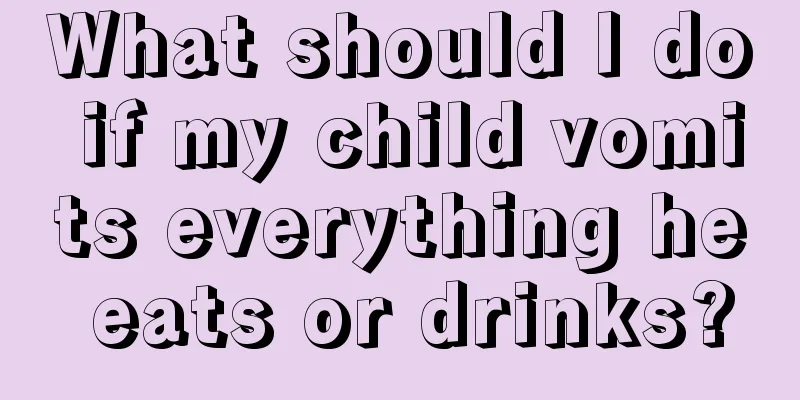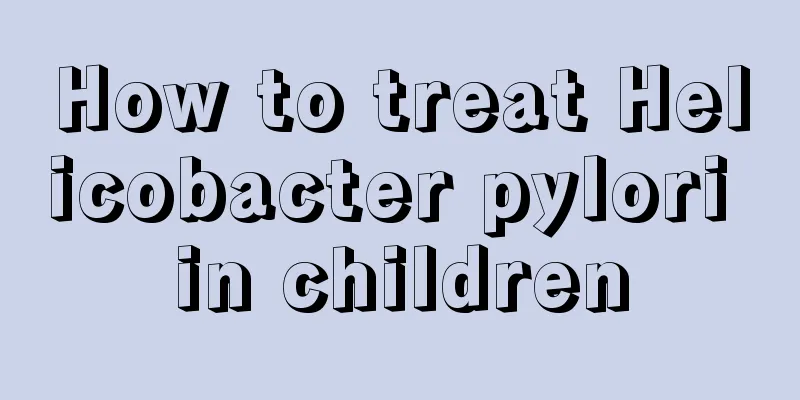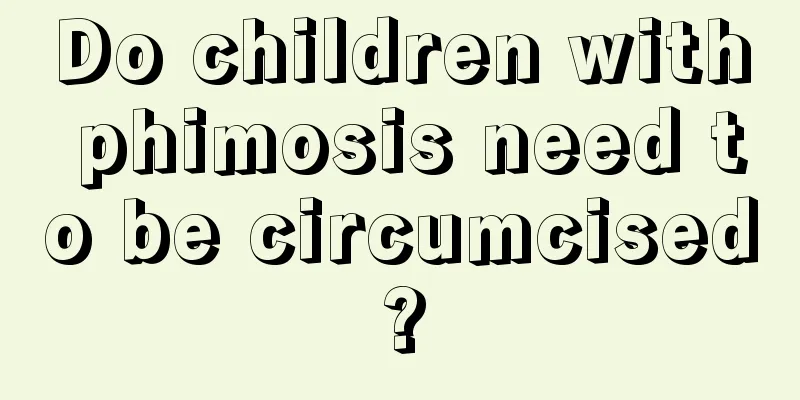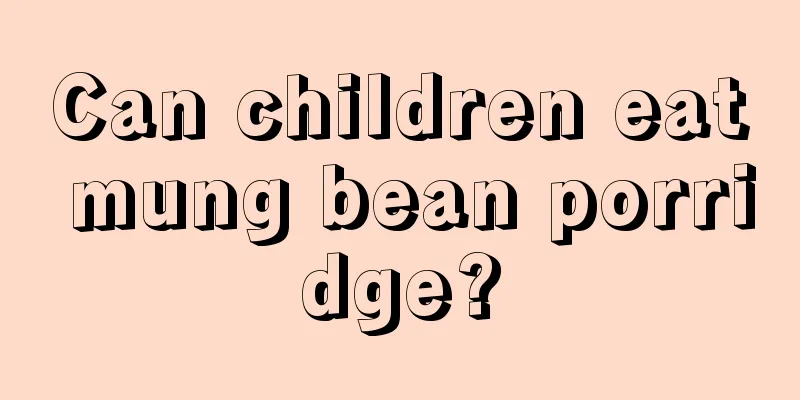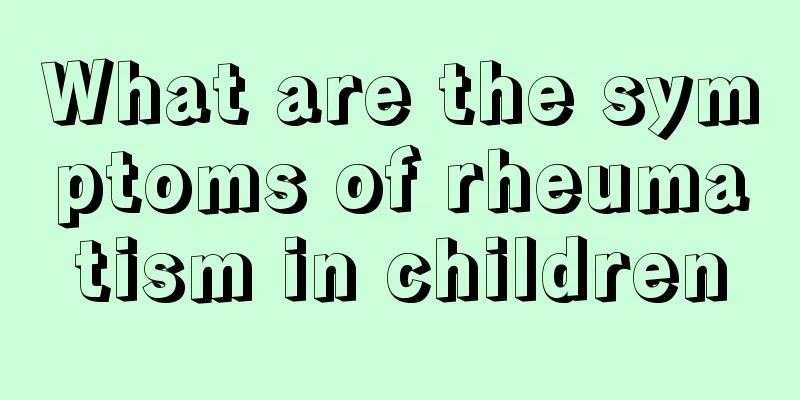How to prevent and treat tonsillitis in children
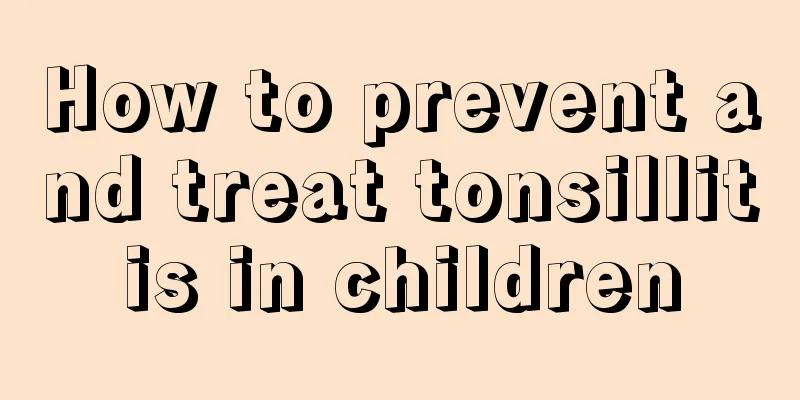
|
Children are the future of the motherland and the hope of a family. Children have relatively low physical resistance. When diseases are prevalent, many children will catch colds and fevers, and some will have sore throats. Children’s descriptive abilities are relatively low, and sometimes parents cannot clearly know where their children’s illness lies. When we take our children to see a doctor, most doctors will ask the children to make a “ah” sound and check their throats. This is mainly to check whether there are any problems with the tonsils and throats. So, how should we prevent and treat tonsillitis in children? Open your mouth wide, press down your tongue and make an "ah" sound, you can see the small pink lumps on both sides of the throat, which are the palatine tonsils, commonly known as tonsils. Tonsils begin to develop at 10 months old, with 4-8 years old being the peak period of development. Therefore, tonsils are slightly larger at this age and stop developing around 12 years old. Tonsils are the gateway to the respiratory tract. Especially in children, they are an active immune organ that contains lymphocytes and immune cells at various stages of development. They can inhibit and eliminate pathogenic bacteria and viruses that enter through the mouth and nose. Repeated inflammation of the tonsils can easily cause local complications in surrounding organs. Such as: pharyngitis, laryngitis, tracheitis, pneumonia; otitis media; rhinitis, sinusitis, lymphadenitis, etc. Tonsil pathogens are most likely to cause immune system dysfunction and lead to systemic complications. Such as rheumatic fever (rheumatic arthritis, rheumatic heart disease), skin diseases (psoriasis, exudative erythema multiforme), myocarditis, kidney disease, nephritis, asthma, diabetes, blood diseases and other refractory diseases. People with tonsillitis should develop good living habits, ensure adequate sleep, add or remove clothes in time with weather changes, and remove humid air indoors. These are all important. Children should develop good habits of not being picky about food and not overeating. Keep exercising to improve the body's ability to resist disease. Do not overwork and take a rest in time if you feel tired. Quitting smoking and drinking is an important step in preventing tonsillitis. Prevent all kinds of infectious diseases and epidemics. Liquid or semi-liquid food. If the fever is high, use alcohol bath to help reduce the temperature. Eat a balanced diet and improve nutrition. Children's diet must be nutritionally balanced and in reasonable proportions. In particular, it is important to help children get rid of the bad habit of eating snacks. Most snacks have little nutritional value and will cause children to not eat well, leading to nutritional imbalance. In daily life, drinking tea can not only prevent and improve the treatment of tonsillitis, but also regulate the balance of human body mechanisms, clear away heat and detoxify, reduce inflammation and antibacterial effects, enhance human resistance, and greatly reduce the discomfort caused by tonsillitis. Tonsillitis is mainly caused by droplets and direct contact with the cause. Children have relatively low resistance. In the spring and autumn when the disease is prevalent, you must pay attention to protecting your children. Do not go to crowded places to avoid the spread of the disease. If you are sick, you must take precautions and wear a mask in public places. It is best for children in kindergarten to rest at home for a few days. If the condition is serious, you must seek medical attention in time to prevent complications. Do more physical exercise and strengthen your body functions. |
<<: How to treat and prevent children's tonsillitis with traditional Chinese medicine
>>: Treatment of tonsillitis in children
Recommend
Why doesn't my baby gain weight after eating?
As people's diet is getting better, many pare...
What to do if your 11-month-old baby is restless at night
The physical health of the baby is an issue that ...
Congenital esophageal atresia in newborns
Pregnant women should strictly follow the doctor&...
What should I do if my baby is shy and timid?
Many parents have the question of why other peopl...
What should I apply to my baby's skin when it's scratched?
Because babies are very curious about the outside...
What to do if your baby's tongue is black? You should know these methods
Black tongue coating is a symptom, and many facto...
How many months is it best to wean your baby?
As the baby grows older, he needs to grow up, and...
What are the symptoms of anemia in babies?
Anemia in babies is a common disease during their...
What is the reason for delayed tooth replacement in children?
Children will go through the stage of tooth repla...
Can children drink carbonated drinks?
Children are very interested in colorful and deli...
What should I do if my child's skin is itchy?
I believe that parents with children at home will...
What are the symptoms of ADHD in babies?
ADHD often occurs in infancy and childhood, and i...
How to prevent and treat excessive eye mucus in infants and young children
For adults, excessive eye mucus is mostly caused ...
How to treat baby crying at night
When babies cry at night, our parents often don’t...
What treatment should be used for allergic cough in children?
Allergic cough in children is also known as cough...
